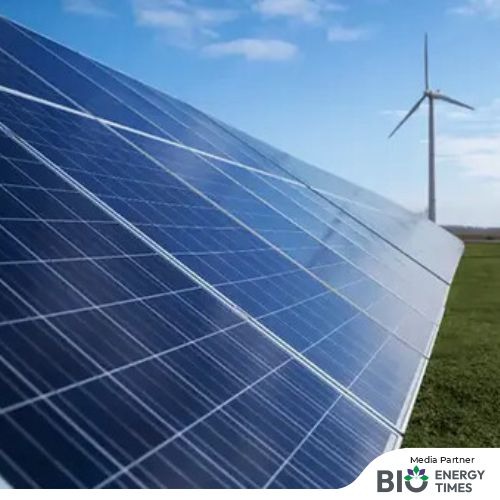Reliance Industries is set to kick off solar power generation from its massive renewable energy project in Kutch, Gujarat, in the first half of the next financial year. This project, sprawling over an area nearly three times the size of Singapore, is a crucial part of the company’s transition towards clean energy as it aims to achieve net-zero carbon emissions by 2035.
During its recent second-quarter earnings announcement, Reliance shared an update on the progress of its 5,50,000-acre renewable energy project in Kutch. The company revealed that development activities are advancing smoothly, with engineering and feasibility studies completed. The site is now in various stages of land development, and solar generation is expected to begin in the first half of FY2026. The energy generated will be used for captive requirements as well as green fuels production.
This development marks a significant milestone in the company’s journey toward becoming a key player in the global clean energy sector. Four years ago, Reliance Chairman Mukesh Ambani announced a $10 billion investment in a new energy business, signaling a shift in focus from its traditional petroleum refining operations.
To spearhead this transition, Reliance began constructing the Dhirubhai Ambani Green Energy Giga Complex, an integrated renewable energy hub named after the company’s founder. At this year’s annual shareholder meeting, Anant Ambani, the company’s Director, shared some awe-inspiring details about the scale of the project. The Giga Complex will cover an area four times the size of Tesla’s Gigafactory and will involve significant infrastructure, including enough steel to build 100 Eiffel Towers and cables long enough to stretch from the Earth to the moon and back.
The Giga Complex in Jamnagar, the heart of Reliance’s refining and petrochemical operations, will manufacture components for solar energy generation, as well as the battery value chain. Meanwhile, in Kutch, Reliance is developing one of the largest single-site solar projects in the world, spanning 5,50,000 acres—three times the size of Singapore.
Reliance’s clean energy plans include a broad spectrum of projects, such as solar photovoltaic (PV), battery storage, green hydrogen, and sustainable aviation fuel. The company is on track to build 20 GWp of solar PV manufacturing capacity and a 100 GWh battery gigafactory. Furthermore, it aims to produce 3 million tonnes per annum of green hydrogen by 2032, alongside in-house production of essential equipment like electrolysers, battery storage, and solar panels.
Reliance is making steady progress in expanding its solar photovoltaic (PV) manufacturing capabilities. According to the company’s investor presentation, four PV module lines have already been commissioned, and the first solar cell line is expected to begin operations soon. The company is on track to meet its targeted production capacity and will continue expanding in a modular fashion.
The solar manufacturing process involves several stages, starting with the production of polysilicon, a high-purity form of silicon made from sand. This is followed by the creation of ingots and wafers, which are sliced and processed to form the base of solar cells. The cells undergo further manufacturing steps, including doping, cleaning, and coating before being laminated into solar panels. These panels are then assembled into arrays, which are mounted in sunlight-rich areas to generate energy.
In addition to its solar projects, Reliance is also focusing on battery energy storage, essential for providing round-the-clock power as sunlight is only available during the day. The company shared that the Battery Energy Storage giga-factory is progressing rapidly, with significant construction and engineering work completed on-site. The company is on track to install production line equipment for the 40 GWh manufacturing capacity.
Reliance’s commitment to building out its battery storage capacity underscores its ambition to create a sustainable, reliable energy ecosystem, capable of supporting both solar power generation and electric mobility needs.
With these significant investments and projects underway, Reliance Industries is positioning itself at the forefront of India’s clean energy revolution. The company’s diversified approach, combining solar power, battery storage, and green hydrogen, signals its long-term commitment to sustainability and carbon reduction.
As Reliance continues to advance its renewable energy infrastructure, it is set to play a pivotal role in India’s push towards a net-zero future. The Kutch solar project and the Dhirubhai Ambani Green Energy Giga Complex are key steps in Reliance’s broader strategy to dominate the clean energy landscape while supporting the country’s growing energy demands.















